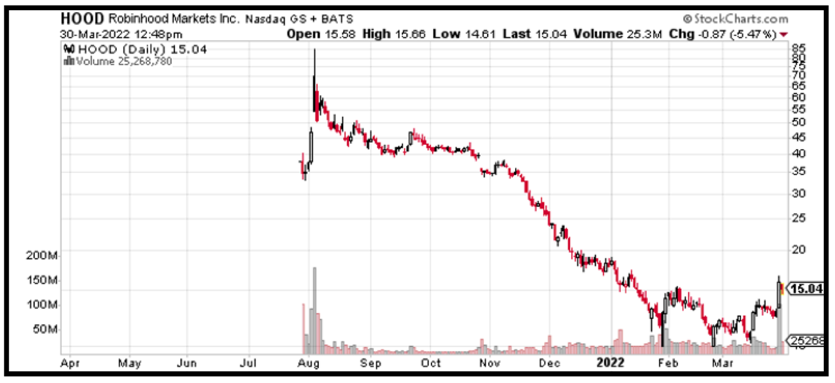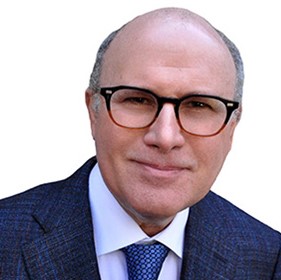Online brokerage firms are in a frantic race to provide more tools to investors. It seems counterintuitive, yet when it comes to trade execution, less is often more.
Executives at Robinhood Markets (HOOD) announced on Tuesday that customers are now able to trade securities from 7 a.m. to 8 p.m. Eastern.
Eventually, trade execution will be available around the clock.
It's a great development for Robinhood shareholders … but not so much for clients.
Robinhood has been derided by traditionalists, regulators and even some users for gamifying investing. The platform almost makes it too easy to get in and out of stocks and options.
Founders Vlad Tenev and Baiju Bhatt had the genius idea in 2013 to merge social media, smartphones and online investing.

Then, the Stanford students schemed up a way to let investors seamlessly purchase odd lots of stocks for free … sort of.
It's a smart idea, but trading on Robinhood isn't really free.
Eliminating the commission that's normally billed to customers means collecting it elsewhere. And that's where the business gets a bit sketchy.
Robinhood racks up fees from market makers in exchange for routing client buy and sell orders their way for execution.
This means client accounts at Robinhood are the product. The true customer is the stable of market makers competing for client orders.
According to the S-1 filing with the U.S. Securities and Exchange Commission, only a few of these financial firms now make up 75% of Robinhood's revenues.
For example, market maker Citadel Securities accounted for 34% of sales, Susquehanna International Group contributed 18% and Wolverine Holdings made up 10%.
Worse, the contribution from market makers to the overall business at Robinhood is growing, now up from 62% a year ago.
Related Post: China Lockdowns Hurt Big Tech
Keep in mind, market makers are on the other side of every retail transaction at Robinhood. Their profit is a direct function of the spread between the bid and ask prices. The bigger the spread, the better the profit. And a system called "payment for order flow" kicks back a portion of that windfall to Robinhood.
A lengthy study by BestEx Research argues that these spreads could be narrowed by 25% if they were properly routed to an exchange.
Long story short, customer trading at Robinhood isn't free. The fees are simply hidden in hefty spreads.
Those spreads — and the inherent dangers of relying on market makers — became apparent in February 2021 during the GameStop (GME) trading frenzy.
The so-called "meme stock" zoomed "to the moon" from $17 to a high of $483 as short sellers were forced to buy back rising shares.
The frenetic pace of the advance led to ultrawide spreads, windfall profits for market makers and a slew of trading outages for Robinhood customers.
The Financial Industry Regulatory Authority (FINRA) deemed that those outages did significant harm to customers, and there were steep consequences.
Last June, FINRA announced that Robinhood agreed to pay nearly $70 million to settle customer complaints. It was the largest penalty ever ordered, according to a CNBC report.
The business model at Robinhood is fraught with problems in what should be orderly markets with plenty of buyers and sellers.
Now, imagine what happens to retail orders when they're exposed to chronically illiquid premarket and after-hours trading.
This is undoubtedly a positive development for Robinhood shareholders, because the firm is about collect even bigger fees from market makers.
This also explains why shares jumped on Tuesday to $15.91, a whopping gain of 24%. Unfortunately, it's Robinhood clients who will pay the price for trading in thin markets.
I have never recommended Robinhood shares. I don't have a problem with the ethics of the business model. All is fully disclosed. The company does not pretend that its services are free.
Related Post: Put Tesla Wannabes in Rearview Mirror
My issue has always been the idea that too many customers will ultimately close their accounts as they lose money or interest in investing.
As a business, this is usually unsustainable.
Shares recently traded around $15.09. Robinhood stock trades at 6.4 times sales. The business is currently unprofitable, and the return on investment in 2021 was negative 22.5%.
In my opinion, shares could potentially reach as high as $22 in the next rally, which currently looks like a potentially smart place to sell them.
As always, remember to do your own due diligence before buying anything.
Best wishes,
Jon D. Markman


